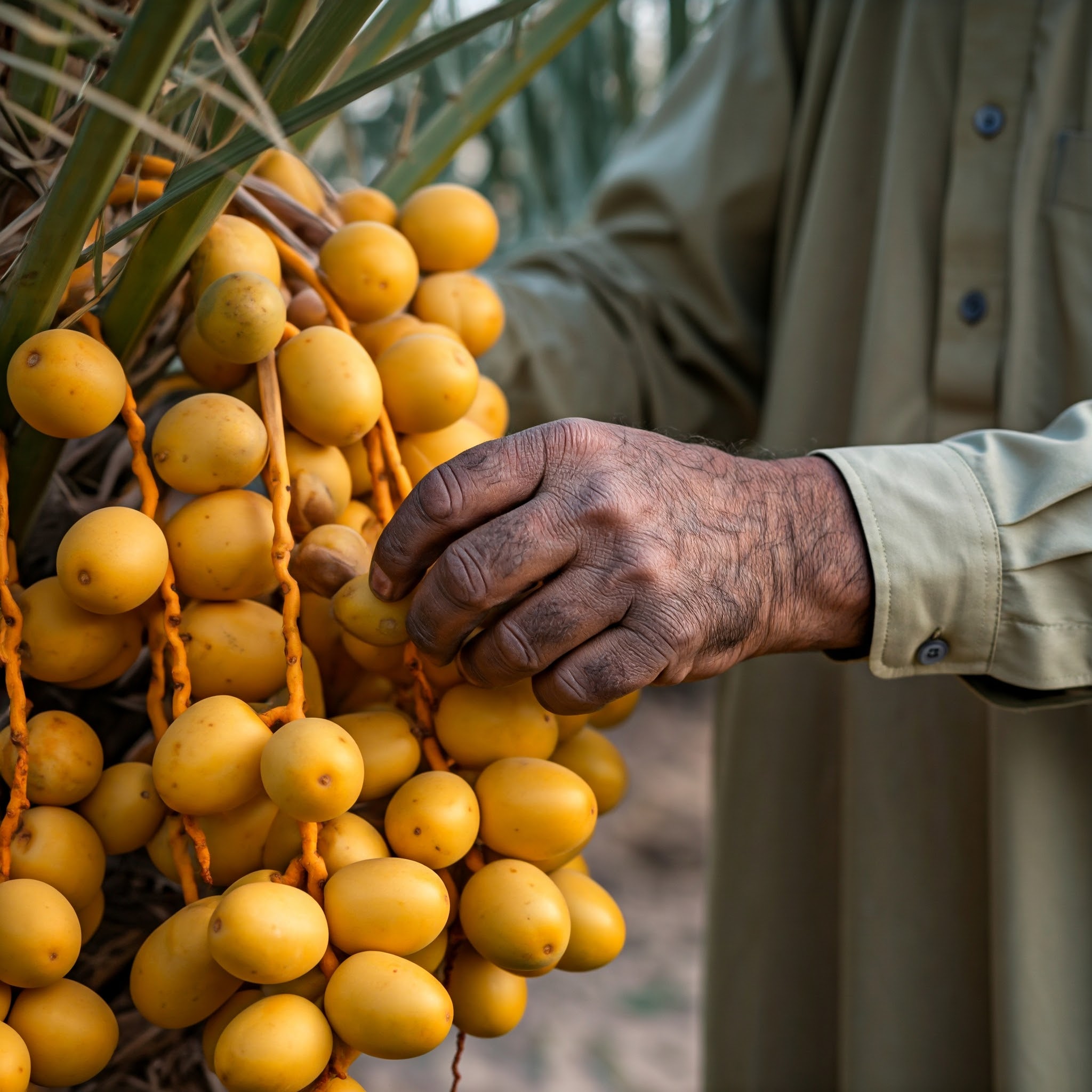Dates, the sweet and chewy fruits of the date palm tree, have been a staple food for centuries. They are enjoyed in various cultures worldwide and are known for their rich flavor and nutritional value. In this article, we will delve into the fascinating world of date farming and origin, exploring the history, cultivation, and production of this delectable fruit.
Date Origin: A Journey Through Time
The date palm tree, scientifically known as Phoenix dactylifera, is believed to have originated in the region around present-day Iraq. Archaeological evidence suggests that dates have been cultivated for over 5,000 years, making them one of the oldest cultivated fruits. From their humble beginnings in the Middle East, dates have spread to various parts of the world, thriving in warm, arid climates.
Date Farming: A Blend of Tradition and Modernity
Date farming is a labor-intensive process that requires careful attention to detail. The date palm tree is dioecious, meaning there are separate male and female trees. Pollination is typically done manually, with farmers carefully transferring pollen from male to female trees to ensure fruit production.
Date palms are typically planted in rows, with enough space between them to allow for growth and sunlight penetration. The trees require regular irrigation, especially during the hot summer months. Farmers also need to prune the trees regularly to remove dead fronds and encourage fruit production.
Date Harvesting: A Time of Celebration
The date harvest is a time of celebration in many date-producing regions. The dates are typically harvested in the fall, when they have reached their peak ripeness. Farmers carefully climb the trees to harvest the dates, which are then sorted, cleaned, and packaged for sale.
Date Production: A Global Industry
Dates are produced in many countries around the world, with the Middle East and North Africa being the leading producers. Other significant date-producing regions include Pakistan, California, and Australia.
Pakistan: A Land of Dates
Pakistan is one of the leading date-producing countries in the world. Dates are grown in various parts of the country, with the provinces of Sindh and Balochistan being the major producers. Pakistani dates are known for their high quality and are exported to various countries around the world.

Balouch Foods International: A Leading Exporter of Pakistani Dates
Balouch Foods International is a leading exporter of Pakistani dates. The company is based in Khairpur, a city in the Sindh province known for its date production. Balouch Foods International exports a variety of Pakistani dates, including the popular Aseel Dates.
Date Pak: A Symbol of Pakistani Culture
Dates are an integral part of Pakistani culture. They are often served as a symbol of hospitality and are a popular gift during religious festivals and other celebrations. Dates are also a common ingredient in Pakistani cuisine, used in various sweet and savory dishes.
Pakistan Berries: A Complement to Dates
Pakistan is also known for its production of berries, particularly strawberries and raspberries. These berries are often consumed alongside dates, providing a delicious and nutritious combination.
Khairpur: A Hub of Date Production
Khairpur is a city in the Sindh province of Pakistan known for its date production. The city is home to many date farms and processing facilities. Khairpur dates are known for their high quality and are exported to various countries around the world.
Conclusion
Date farming and origin is a fascinating story that spans thousands of years. From their ancient origins in the Middle East to their modern-day cultivation in various parts of the world, dates have played an important role in human history. Pakistan is one of the leading date-producing countries, with a rich tradition of date cultivation. The country’s dates are known for their high quality and are enjoyed by people around the world.

No responses yet